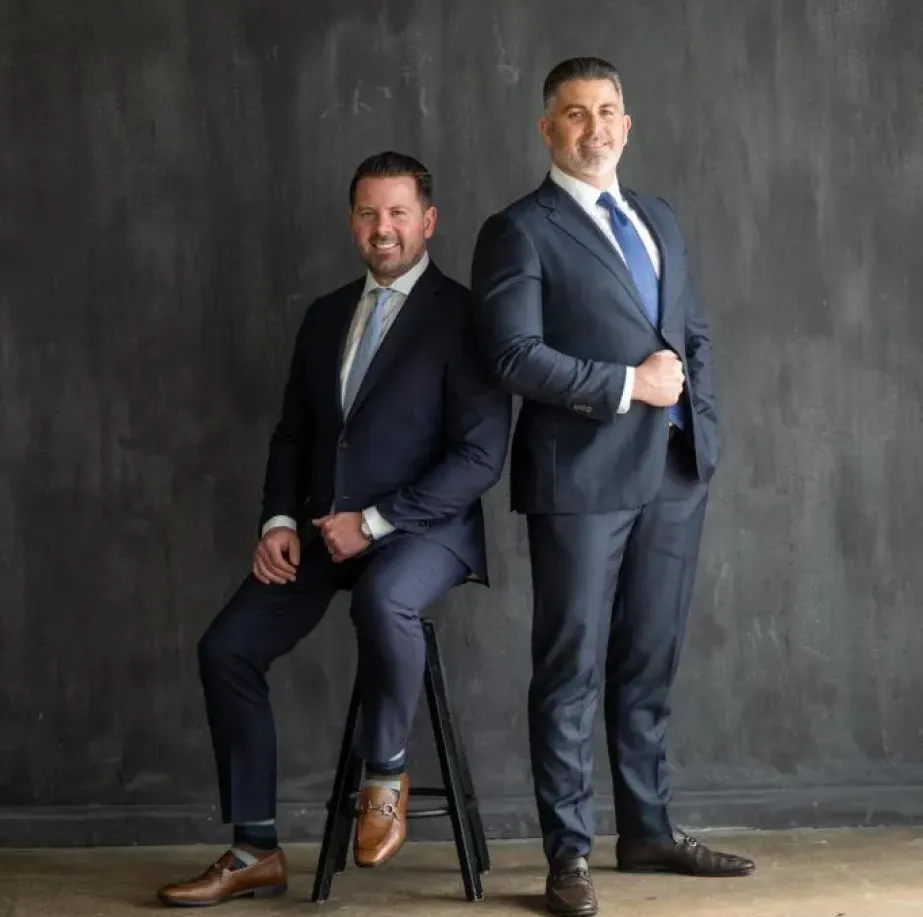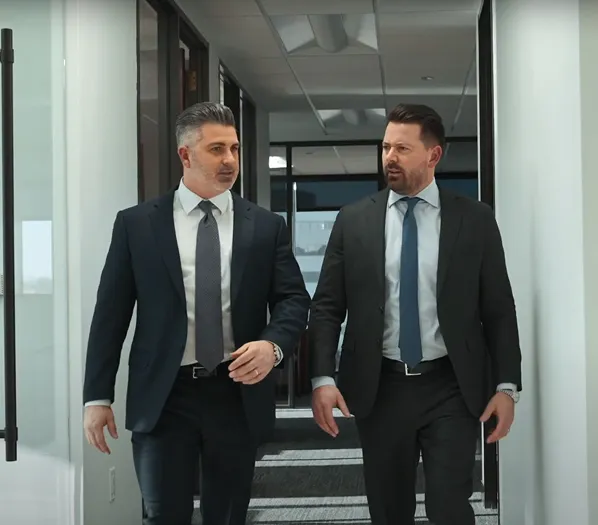Did you know that out of all 50 states, Texas residents have the second-highest number of traumatic brain injuries?
The Texas Division of the Brain Injury Association of America estimates that at least 144,000 Texans experience a traumatic brain injury every year.
Brain injuries can cause permanent disabilities. In fact, about 381,000 Texans currently live with a TBI-related injury.
Sustained a brain injury in an accident? Reach out to our skilled Texas brain injury lawyer today.
Key Takeaways
- Head injuries involve damage to the skull, scalp, brain, and blood vessels in the head.
- A traumatic brain injury (TBI) occurs when an external force damages the brain.
- A skilled Texas brain injury attorney can build a strong personal injury case and recover the compensation you need to cover your medical expenses, lost income, and other TBI-related expenses.
Why You Should Partner With a Texas Brain Injury Attorney at DFW Injury Lawyers

Not only can a TBI lead to permanent health consequences, it can also affect your personal relationships, professional life, and even your personality.
What’s more, you can experience long-term side effects even when a TBI seems “minor,” for example, after a temporary loss of consciousness for a few seconds.
After suffering any form of head trauma, seek medical attention. A medical diagnosis can help you better understand your potential treatment options, life expectations, and related financial implications.
Chances are good your medical bills will cost you thousands of dollars. Texas law allows you to request compensation to help pay for your treatment and other losses if your TBI resulted from an accident caused by someone else.
The Texas brain injury lawyers at DFW Injury Lawyers can explain your specific legal options and how the injury claim process works. To learn more about how our skilled personal injury lawyers can recover the compensation you deserve, reach out for a free consultation.
Head Trauma and Brain Injuries: TBI Basics

In medical terms, head injuries are a broad category of damage to the skull, scalp, brain, and blood vessels in the head. A head injury can cause minor symptoms or extremely serious ones.
Some brain injury symptoms may not immediately appear, so get a full physical if you hit your head. You’ll also want to have someone watch over you if you suffer a head injury.
After a traumatic brain injury, you need a support team that includes your closest loved ones, skilled healthcare providers, and a compassionate personal injury lawyer who has experience handling TBI cases. Your loved ones can address your personal and emotional needs, while a healthcare provider can guide you through the best recovery possible.
A skilled brain injury attorney will explain your legal options and build a strong personal injury claim so you receive the maximum compensation possible while you focus on healing.
Types of Injuries Our Brain Injury Law Firm Handles
Traumatic brain injuries and other types of head wounds range in severity. A dedicated brain injury attorney in our Texas law firm can fight for your right to receive payment for your TBI-related losses from those responsible for your accident.
Here is a broad overview of the different types of brain injuries Texas accident victims suffer:
- Mild: A mild brain injury can occur with or without the loss of consciousness. It typically results in post-traumatic amnesia for less than an hour and mild symptoms like dizziness, confusion, disorientation, and sensitivity. A concussion is an example of a mild TBI.
- Moderate: Moderate brain injuries lead to a loss of consciousness anywhere from 15 minutes to six hours. Symptoms of amnesia can last up to 24 hours, and the patient almost always needs to be hospitalized for monitoring overnight. Moderate TBIs have more of an impact on a person’s total physical, mental, and emotional well-being. Moderate TBIs also usually affect a person’s ability to work. Recovery periods can take a long time.
- Severe: A brain injury is considered severe when the person remains unconscious for more than six hours and experiences amnesia symptoms for over 24 hours. These individuals may experience debilitating symptoms that prevent them from returning to their post-injury lifestyle.
- Very Severe: These extreme TBIs usually result in loss of consciousness for over 48 hours. Serious amnesia symptoms can last over a week, and the person may experience life-altering impacts.
In general, the longer a person is unconscious, the more severe and lasting the impact of the TBI. However, even “mild” TBIs can cause life-altering symptoms.
When someone else’s negligent or careless behavior caused an accident that led to your TBI, you shouldn’t bear the financial burden of medical treatment, lost income, and other related losses. Reach out to the knowledgeable brain injury lawyers at DFW Injury Lawyers to protect your rights and your future.
What is an Acquired Brain Injury?

Traumatic brain injuries are a type of acquired brain injury that is defined as damage to the brain other than brain injuries that happen at birth.
Many events can cause an acquired brain injury, like a car accident, a slip and fall, or a violent strike to the head. Brain injuries that develop due to degenerative diseases, like Alzheimer’s, are not considered TBIs.
Acquired brain damage can lead to many whole-body symptoms like:
- Severe headaches
- Confusion
- Loss of consciousness
- Vomiting and nausea
- Dizziness and disorientation
- Trouble walking or performing physical tasks
- Disturbed vision or speech
- Weakness of the extremities
- Fluid or blood draining from the ears or nose
If you suspect another party contributed to your accident, our Texas brain injury attorneys can determine if you can file a lawsuit to recover compensation from the responsible parties.
Traumatic Brain Injuries vs. Non-Traumatic Brain Injuries
By definition, external forces acting on the body cause all traumatic injuries. Car accidents, blunt force trauma from a fall, or intentional acts like a physical assault or gunshot wound can cause TBIs. However, brain injuries can happen when external or internal factors damage the brain and cause a clear change in the way a person’s brain functions.
Non-traumatic brain injuries tend to develop due to internal factors like a lack of oxygen or pressure from a tumor. A non-traumatic brain injury can lead to equally agonizing symptoms, but if another person’s negligent actions did not cause them, they do not qualify as a personal injury that deserves compensation from an at-fault party.
Common Causes of Traumatic Brain Injuries

Here are some of the top situations that can cause head injuries and TBIs:
- Car accidents are the leading cause of TBIs. During a crash, a person goes from traveling at a high speed to a complete stop.
- Truck accidents can cause more severe injuries when a massive truck collides with a smaller vehicle due to a semi-tractor’s sheer size and weight. Truck accident victims often report traumatic brain injuries along with other serious conditions.
- Motorcycle crashes can lead to extremely serious head injuries because riders do not have the same physical protection as people in cars and trucks. When a rider wears a helmet, the risk of sustaining a brain injury may decrease but they do not never completely negate it.
- Pedestrian accidents can result in massive injuries, including death, due to the level of exposure involved.
- Slip and fall accidents can lead to severe brain injuries whether they happen from a height or at ground level.
- Boating accidents also often lead to TBIs. Texas Parks and Wildlife reported over 2,559 boating injuries in one recent year.
- Product liability incidents can lead to a TBI injury when a defective or improperly designed product injures a consumer.
- Sports injuries are a frequent cause of TBIs in children and teenagers. Since youth sports leagues are so common — yet dangerous — Texas passed Natasha’s Law (TX HB 2038) to protect young athletes. This law requires a coach to immediately remove a player from a game or activity if they suspect a potential head injury.
Do You Have a Brain Injury Case?

After a TBI-related accident, it’s an uphill battle to recover physically, identify your losses, and rebuild your life. One thing to consider along the way is whether you have the legal option of filing a brain injury lawsuit.
To determine if you have a case, talk to experienced Texas personal injury lawyers who can review your situation, investigate the circumstances, and explain your rights under Texas law.
In general, you could have a claim if another party had a legal duty to provide for your care, they failed to do so, and their action or inaction caused your accident.
When you partner with a skilled brain injury law firm like DFW Injury Lawyers, we can provide the legal services and resources you need and help you determine if you have a viable claim against the at-fault party who injured you.
Key Factors in a Brain Injury Case
Some of the key factors that determine if you have a viable personal injury claim include:
- Legal liability: whether the party causing the injury is legally at fault
- Damages: the extent of your losses
- Collectability: whether your damages are collectible from the responsible party
Determining fault for your accident is the first step in bringing a successful claim and understanding the extent of the damages you can request. Your brain injury lawyer will need to provide proof of fault, which might include police reports, eyewitness testimony, video footage of the accident, and other evidence.
Our Brain Injury Attorneys Also Handle Wrongful Death Claims
The Texas Brain Injury Advisory Council documented at least 64,362 TBI-related deaths in one recent year. When a TBI-related accident leads to a fatality, the surviving loved ones may file a wrongful death claim to recover losses like burial costs, medical bills prior to their loved one’s passing, a loss of financial support, and more.
What Legal Damages Can I Receive in a Texas TBI Injury Claim?

Here are some of the most common losses that you can recover through a claim:
- Medical Bills: These damages should compensate you for current and future medical bills.
- Lost Wages: These damages cover your lost wages and benefits you could have earned if you weren’t injured.
- Pain and Suffering: These non-economic losses relate to the value of physical pain and emotional distress. Though placing a specific monetary value on these damages is challenging, they are an important type of loss that should not be overlooked when pursuing compensation.
- Impairment: Damages for physical impairment cover your inability to do things you normally enjoyed doing before your injury caused your current limitations.
- Punitive Damages: These damages punish and penalize the party responsible for the accident. The financial penalty discourages similar behavior.
- Loss of Consortium: These damages compensate you for any damage to your relationships and their benefits following the TBI.
Texas Brain Injury Lawyer: FAQs
Below, we’ll discuss some of the most frequently asked questions about brain injuries, personal injury lawyers in Texas, and how to use the law to your advantage and seek compensation.
How Do I Find a Brain Injury Attorney Near Me?
To find the best Texas brain injury attorneys in your area, search online for local offices. From there, look for firms with positive testimonials from past clients, substantial case outcomes, and free consultations. Take the time to talk with the brain injury law firm, and select the attorney who best meets your needs.
DFW Injury Lawyers offers free legal consultations and can help answer any questions you may have about the process of filing a Texas brain injury lawsuit.
How Much Do Texas Brain Injury Lawyers Charge?
DFW Injury Lawyers offer its services on a contingency fee basis. That means you won’t have to pay attorney’s fees as the case progresses. Instead, you’ll pay your attorney a percentage of your overall settlement or verdict amount. With this fee arrangement, your lawyer won’t get paid until you do.
This financial arrangement benefits injured individuals already struggling to cope with significant financial losses. The team at DFW Injury Lawyers understands the financial pressure you’re facing. We’re prepared to work diligently to ensure you get paid in a timely manner.
How Much Time Do I Have to File a Brain Injury Lawsuit?
Texas statute of limitations laws give you two years from the date of an accident to file a claim. There are a few exceptions to this. Minors, for example, who get injured can still file a claim for up to two years after they turn 18. To ensure your claim is filed within the statutory deadlines, talk to our Texas personal injury attorneys as soon as possible after your accident.
What is a traumatic brain injury (TBI)?
A traumatic brain injury is damage to the brain caused by an external force, such as a blow to the head. It can range from mild concussions to severe injuries resulting in long-term disability or death.
What are common causes of brain injuries?
Brain injuries often result from:
- Motor vehicle accidents
- Falls
- Sports injuries
- Workplace accidents
- Acts of violence
What are the symptoms of a brain injury?
Symptoms can vary but may include:
- Headaches
- Memory loss
- Confusion
- Dizziness
- Nausea
- Changes in sleep patterns
- Mood swings
How is a brain injury diagnosed?
Medical professionals use various methods, including:
- Neurological exams
- CT scans
- MRI scans
- Cognitive assessments
What types of brain injuries are there?
- Concussions
- Contusions
- Diffuse axonal injury
- Penetrating injuries
How can a Texas brain injury attorney help me?
An experienced brain injury lawyer can:
- Investigate your case
- Gather evidence
- Negotiate with insurance companies
- Pursue fair compensation for medical bills, lost wages, and pain and suffering
What compensation can I seek for a brain injury?
You may be eligible for:
- Medical expenses (past and future)
- Lost wages and earning capacity
- Rehabilitation costs
- Pain and suffering
- Long-term care expenses
Is there a time limit to file a brain injury lawsuit in Texas?
Yes, Texas has a statute of limitations. Generally, you have two years from the date of injury to file a lawsuit. Consult an attorney promptly to ensure you don’t miss important deadlines.
How much does it cost to hire a brain injury attorney?
Many brain injury attorneys work on a contingency fee basis, meaning they only get paid if you win your case. Most offer a free consultation to discuss your case.
What should I do immediately after sustaining a head injury?
Seek immediate medical attention, even for seemingly minor injuries. Document everything related to the accident and your treatment. Contact an experienced brain injury attorney as soon as possible.
How long does a brain injury case typically take?
The duration varies depending on the complexity of the case, severity of injuries, and willingness of the opposing party to negotiate. Some cases settle in months, while others may take years if they go to trial.
What if my loved one died from a brain injury?
In cases of wrongful death due to brain injury, family members may be able to file a wrongful death claim to seek compensation for their loss.
What is the difference between mild traumatic brain injury and severe brain injury?
Mild traumatic brain injury (mTBI), often called a concussion, typically involves a brief change in mental status or consciousness. Symptoms may include headaches, confusion, and temporary memory loss. While most people recover from mTBI, some experience persistent symptoms.
Severe brain injury involves an extended period of unconsciousness or amnesia. It can result in long-term cognitive impairment, physical disabilities, or even permanent brain damage. Severe cases may lead to disorders of consciousness like coma or vegetative state.
How can a Dallas brain injury lawyer help with the legal process and insurance companies?
A Dallas brain injury attorney can be crucial in navigating the complex legal landscape and dealing with insurance companies. They can:
- Handle communication with insurance adjusters
- Gather and present evidence to support your claim
- Consult with medical professionals to understand the full extent of your injuries
- Negotiate for fair compensation, considering both immediate and long-term needs
- Represent you in court if a fair settlement cannot be reached
- Ensure you meet all legal deadlines and file necessary paperwork correctly
An experienced lawyer understands the tactics insurance companies use to minimize payouts and can work to protect your rights and interests throughout the process.
What are some potential long-term consequences of traumatic brain injuries?
Traumatic brain injuries can have life-long consequences, including:
- Cognitive issues: Problems with memory, attention, and decision-making
- Physical impairments: Chronic pain, seizures, or mobility issues
- Sensory processing problems: Changes in vision, hearing, or sense of touch
- Emotional and behavioral changes: Mood swings, depression, or personality changes
- Increased risk of neurodegenerative diseases: Such as chronic traumatic encephalopathy (CTE)
- Sleep disorders: Insomnia or other sleep pattern disruptions
- Communication difficulties: Challenges with speech or understanding language
These long-term effects can significantly impact a person’s quality of life, ability to work, and relationships. An experienced brain injury attorney can help ensure that any compensation sought accounts for these potential long-term consequences.
Trust the Texas Brain Injury Attorneys at DFW Injury Lawyers to Protect Your Rights

If you were recently in an accident caused by someone else that resulted in a head injury, you deserve a dedicated team of experienced lawyers working for you. Contact the Texas personal injury attorneys at DFW Injury Lawyers to learn if you may qualify to file a brain injury lawsuit.
We can explain your legal rights and guide you through the legal process to help you recover the maximum amount of compensation possible. Depending on your unique circumstances, we may be able to recover compensation to help you cover medical losses, lost wages, pain and suffering, and more. We are available 24/7 to talk about your claim.
Don’t wait to learn more. Contact us today at (972) 440-2320 for your free consultation.